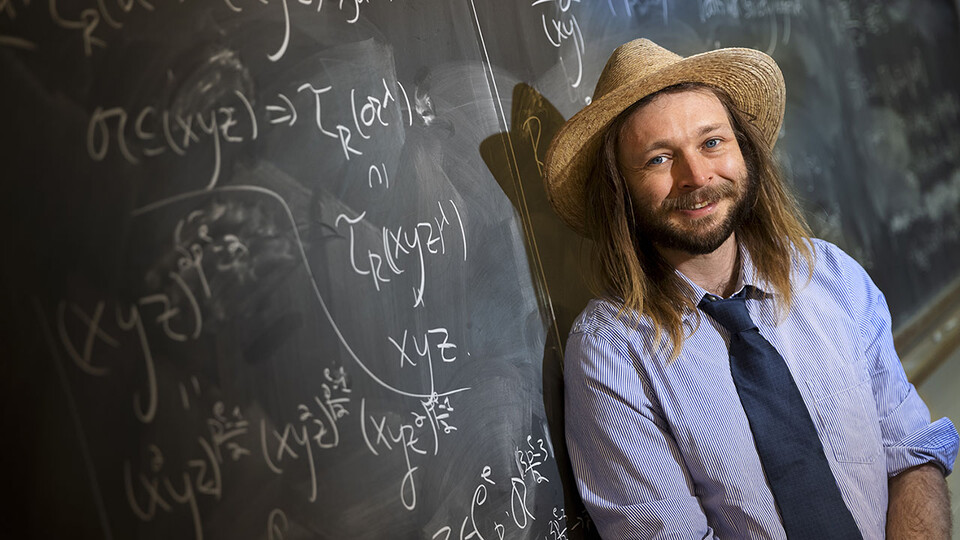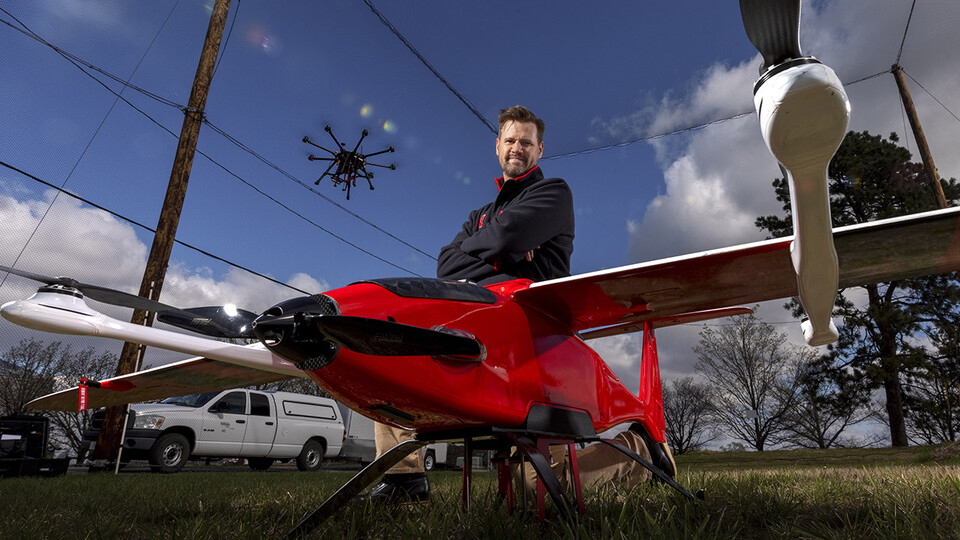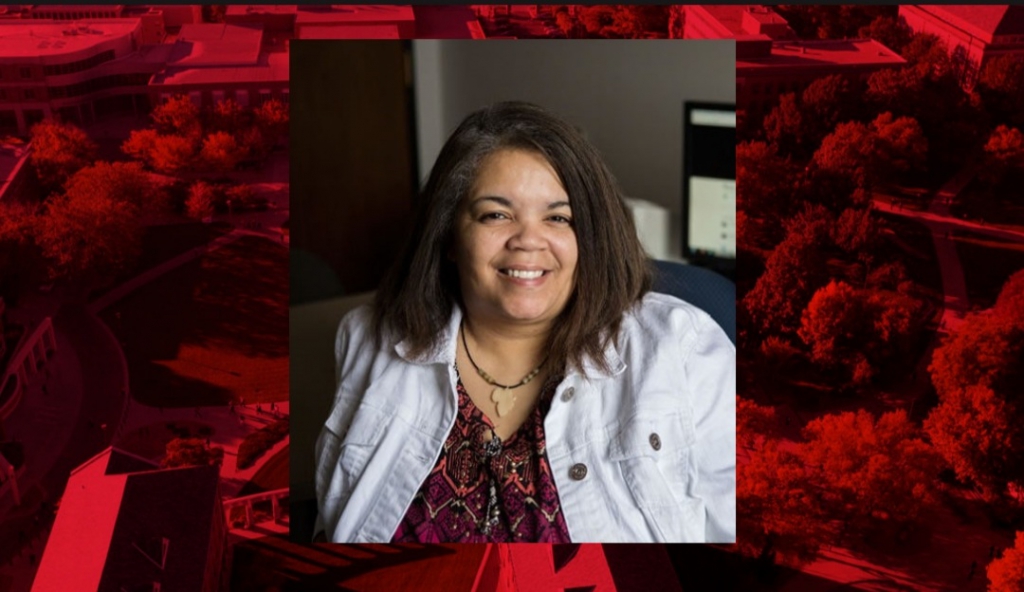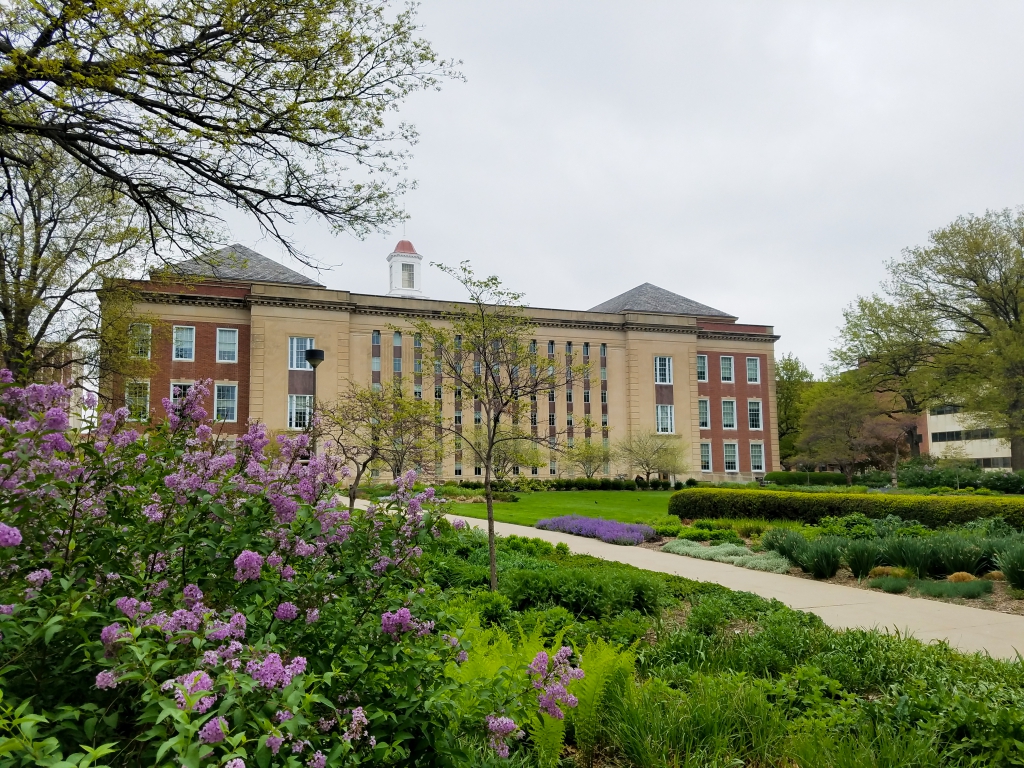In case you missed these stories highlighting research and creative activity at the University of Nebraska-Lincoln, the Office of Research and Economic Development’s communications team has compiled a roundup of some of the month’s top stories from research.unl.edu.
Shoemaker earns Carnegie Fellowship to explore rural futures

Photo by Craig Chandler/University Communication
Who: Jessica Shoemaker, professor of law
What: The idea of owning rural land may conjure bucolic images of simpler times, but the modern reality is far more complex. Shoemaker is studying how, after a landowner’s death, property laws favor land transfers to either heirs or corporations removed from community life. These common succession plans make it harder for farmers of color and beginning farmers to get started if they don’t have a direct path to family land.
“The past, present and future of the American countryside is right at the heart of so many of our grand global challenges, from climate change to racial justice, Shoemaker said.
Writer: Dan Moser, Office of Research and Economic Development
Nebraska researchers stepping up to help people, families affected by autism

Who: Julia Torquatti, professor of child, youth and family studies; Ed Daly, professor of educational psychology; Susan Loveall, assistant professor of special education and communication disorders; Derek Rodgers, research assistant professor of special education and communication disorders; and Anne Wragge, statewide coordinator, Nebraska Autism Spectrum Disorders Network.
What: The autism diagnosis rate in Nebraska has grown steadily since 2002, mirroring national trends. Husker researchers and practitioners are improving autism awareness and acceptance, increasing the odds that children receive the best education possible and that parents, teachers and other trusted adults have access to research-based information and resources.
“I love the lessons we learn from families and self-advocates about the movement toward acceptance,” Wragge said. “We want doctors and providers to identify autism earlier, but we don’t want to change everything about who people are. I love that shift.”
Writer: Tiffany Lee, Office of Research and Economic Development
Nebraska virologists discover nutrient compound may halt mother-to-fetus Zika transmission

Artwork by Joel Brehm/Research and Economic Development
Who: Sathish Kumar Natarajan, assistant professor of health and nutrition sciences; and Asit Pattnaik, professor, veterinary medicine and biomedical sciences
What: Reading studies about Zika virus, Natarajan noticed a possible connection between his research on acute fatty liver of pregnancy – a rare, potentially fatal condition known as AFLP – and how the Zika virus passes from mother to fetus. A damaged placenta is the common factor. He and Pattnaik are investigating how a nutrient compound used to prevent cell death from AFLP also might effectively slow Zika transmission.
“As we’ve seen during the COVID pandemic, if you’re not proactive in trying to mitigate the effects of these viruses, the consequences can be significant,” Natarajan said. “We hope that if Zika outbreaks arise again in the future, we can be more prepared with strategies that help pregnant women.”
Writer: Tiffany Lee, Office of Research and Economic Development
Jeffries’ CAREER award bolsters Nebraska’s mathematics expertise

Photo by Craig Chandler/University Communication
Who: Jack Jeffries, assistant professor of mathematics
What: New faculty member Jeffries won the Department of Mathematics’ first National Science Foundation Early Career Development Program Award from the National Science Foundation. He is advancing his work in commutative algebra – a field of abstract algebra in which Nebraska is known as an international leader. Jeffries is especially interested in singularities — points at which a mathematical object, or geometrical shape, is not “well-behaved” in some way.
“Systems of polynomial equations are ubiquitous throughout the sciences,” Jeffries said. “Singular points are of interest because many standard techniques and algorithms can go haywire at those points.”
Writer: Tiffany Lee, Office of Research and Economic Development
Bradley’s CAREER project to boost drones’ adaptability, performance

Photo by Craig Chandler/University Communication
Who: Justin Bradley, assistant professor of computer science and engineering
What: Bradley hopes to give drones and robotics the human-like ability to switch tasks according to priority and changes in their environment. He’s drawing upon his unique background in computer, electrical and aerospace engineering to develop mathematical and computing tools that would improve performance and unlock drones’ full potential, especially for surveillance and reconnaissance missions.
“The best way to think about it is that when you, as a human, are doing tasks, you can refocus your attention as you need to. If something happens in your environment, you can shift your attention,” Bradley said. “Robots don’t have that capability. Whatever they’re doing, they’re doing it at 100%. This work would allow them to allocate that attention according to what they need to do.”
Writer: Tiffany Lee, Office of Research and Economic Development
Nebraska researcher explores social justice in South Africa, notes parallels with U.S.

Photo courtesy of University Communication
Who: Dawne Y. Curry, associate professor of history and ethnic studies
What: Curry has spent much of her academic career studying African history, particularly resistance and protest struggles in South Africa. She’s on the cusp of releasing a new book that reveals the critical role Black women have played in South Africa’s social justice movements, despite the resistance they’ve faced because of their race and gender.
“I got interested because I saw parallels with the American civil rights movement,” Curry said. “I would say in both the post-civil rights era and post-apartheid era, there are some similarities in terms of how race relations are evolving and how they are also re-emerging in some ways.”
Writer: Dan Moser, Office of Research and Economic Development
Diversity Drones Early Childhood Health In the News Mathematics Research Highlights Research News Rural Issues Virology






